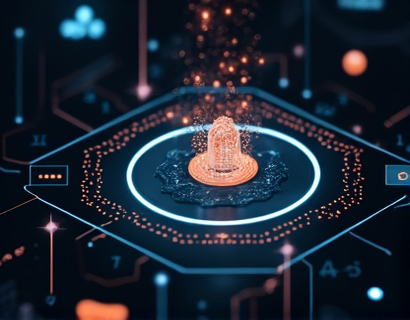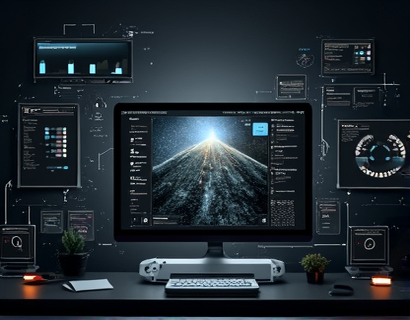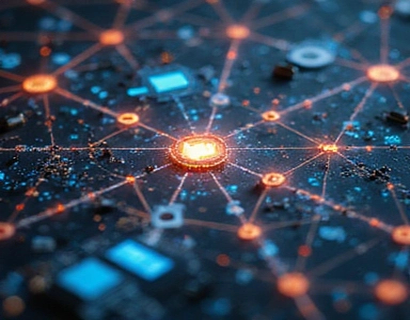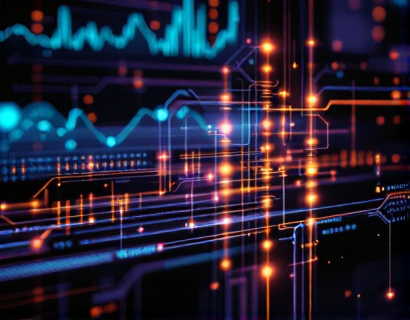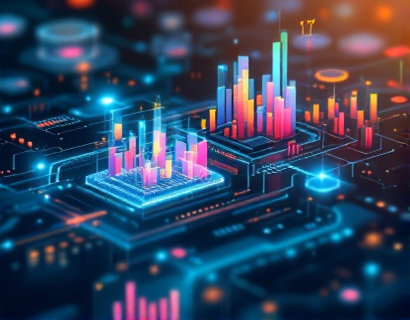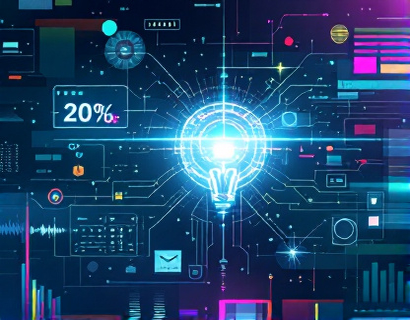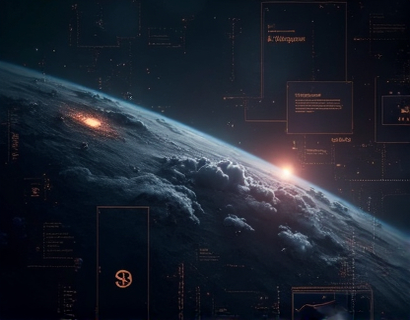Empowering Early Adopters and Tech Innovators: The Synergy of Crypto and AI
The intersection of cryptocurrency and artificial intelligence (AI) is giving rise to a new era of digital solutions that are revolutionizing the way we interact with technology. For tech innovators and early adopters, this convergence presents unprecedented opportunities to harness next-generation tools that can transform businesses and redefine digital experiences. This article delves into the transformative impact of merging crypto and AI, exploring the innovations that are reshaping the digital landscape and offering valuable insights for those at the forefront of technological advancement.
The Emergence of Crypto and AI
Cryptocurrency, since its inception with Bitcoin in 2009, has evolved from a niche digital currency to a catalyst for broader technological change. The underlying blockchain technology has proven to be a robust and secure foundation for various applications beyond finance. Meanwhile, AI has progressed from theoretical concepts to practical implementations across industries, from healthcare to manufacturing. The synergy between these two technologies is beginning to unlock new possibilities, creating a powerful toolkit for early adopters and tech innovators.
Blockchain's Role in AI Ecosystems
Blockchain technology offers several key features that complement AI systems. Decentralization, for instance, ensures that AI models and data are not controlled by a single entity, promoting transparency and trust. Smart contracts, self-executing contracts with the terms directly written into code, can automate and enforce agreements related to AI services, reducing the need for intermediaries and enhancing efficiency. Furthermore, the immutable nature of blockchain ensures that AI data and model updates are tamper-proof, which is crucial for maintaining the integrity of AI systems.
AI-Enhanced Cryptocurrency Applications
The integration of AI into cryptocurrency applications is leading to more sophisticated and user-friendly solutions. AI-driven trading platforms use machine learning algorithms to analyze market trends and make informed trading decisions, providing users with a competitive edge. Robo-advisors in the crypto space leverage AI to manage investment portfolios, optimizing asset allocation and risk management. Additionally, AI-powered security solutions can detect and mitigate threats in real-time, enhancing the overall safety of cryptocurrency transactions.
Decentralized AI (DAI)
Decentralized AI, or DAI, represents a paradigm shift where AI models and data are managed on a decentralized network. This approach addresses some of the centralization concerns associated with traditional AI, such as data privacy and bias. By using blockchain to store and share AI models and datasets, DAI ensures that these resources are accessible to a broader audience while maintaining control and ownership. For early adopters, this means having access to a more democratic and transparent AI ecosystem.
Data Privacy and Security
One of the most significant advantages of combining crypto and AI is the enhanced focus on data privacy and security. Blockchain's cryptographic techniques ensure that sensitive data is encrypted and only accessible to authorized parties. This is particularly important in AI, where large datasets often contain personal information. By leveraging blockchain, AI systems can process and analyze data without compromising user privacy, aligning with the growing demand for ethical and secure technology solutions.
Tokenization of AI Assets
Tokenization, a process enabled by blockchain, allows for the creation of digital tokens that represent ownership or access to AI assets. This can include AI models, data sets, and even computing resources. Tokenization democratizes access to high-quality AI tools, enabling smaller entities and individual innovators to leverage advanced technologies without significant upfront costs. Early adopters can benefit from this by participating in tokenized markets, accessing a wide range of AI resources, and even monetizing their own AI assets.
Collaborative AI Development
The decentralized nature of blockchain fosters a collaborative environment for AI development. Developers can contribute to open-source AI projects, share insights, and build upon each other's work in a transparent and trustworthy manner. This collaborative approach accelerates innovation, as the collective knowledge and resources of the community drive advancements in AI technology. For tech innovators, this means being part of a dynamic ecosystem where ideas and solutions emerge rapidly, fostering a culture of continuous improvement and creativity.
Challenges and Considerations
While the integration of crypto and AI offers numerous benefits, it also presents challenges that early adopters and tech innovators must navigate. Regulatory uncertainty remains a significant hurdle, as governments worldwide are still grappling with how to govern these emerging technologies. Ensuring compliance with evolving regulations is crucial for maintaining legitimacy and avoiding legal issues. Additionally, the technical complexity of both crypto and AI requires a skilled workforce capable of developing and maintaining these systems. Education and training programs will be essential in building this expertise.
Future Prospects
The future of crypto and AI is bright, with ongoing research and development poised to unlock even more innovative applications. As the technology matures, we can expect to see more seamless integrations that enhance user experiences and drive efficiency across various sectors. The convergence of these technologies will likely lead to the creation of new industries and business models, further cementing their role as key drivers of the next technological revolution. For those who embrace these changes early on, the potential rewards are substantial, offering a competitive advantage in a rapidly evolving digital landscape.
Conclusion
The merging of cryptocurrency and AI is not just a technological trend but a fundamental shift in how we approach digital solutions. For early adopters and tech innovators, this synergy provides a wealth of opportunities to create groundbreaking applications and services that can transform industries and improve lives. By understanding and leveraging the strengths of both crypto and AI, these pioneers can lead the charge in shaping the future of technology, ensuring they remain at the forefront of innovation.







